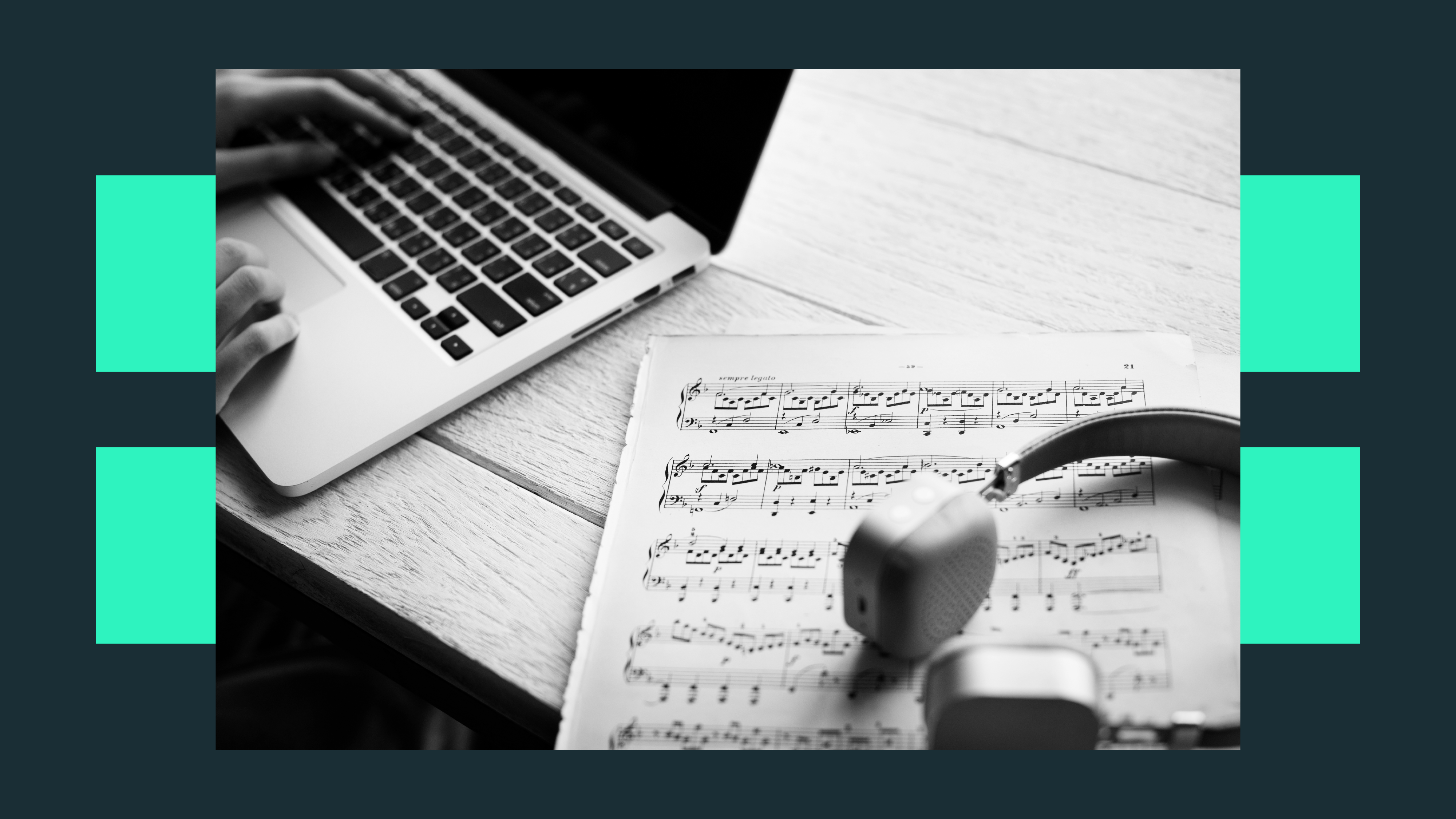How To Become A Music Tutor

Over a quarter of Brits play at least one musical instrument, with around 8% of those playing more than one. If you’re one of these people, or perhaps a singer, you might have considered becoming a music tutor.
Teaching music lessons can be incredibly rewarding, either as a side hustle to supplement your regular income or as your main job. You’ll see your students progress from one lesson to the next in both skill and confidence. It also allows you to make the most of something you love doing yourself.
On top of this, teaching music lessons is a great way to hone your own skills, learning and practising techniques and musical theory that you might have otherwise overlooked.
In this article, you’ll see how to get started as a music tutor; how to structure lessons, what qualifications you need, how much tutors earn, and what equipment you’ll need to get started.
What Do Music Tutors Do?
Here are a few of the activities you can expect as a music tutor:
- Plan engaging lessons to maximise their effectiveness
- Assess the ability and progress of your students
- Prepare students for examinations, live performances, or just playing together with fellow musicians
- Improving your own knowledge and understanding of musical theory and instrumental technique
- Ear training
- Sight reading
- Learning new repertoire based on what your students want to learn
- Playing your instrument in lessons, either individually or with the student
- Using software, tools, and books to reinforce the lessons
- Depending on your skillset, deliver lessons on one or more instruments, or on musical theory
- Deliver one-to-one or group lessons
Where Can You Work as a Music Tutor?
You can teach your lessons at a range of locations, depending on your needs and those of your students. Here are some places where music lessons are typically taught:
- Schools - if you’re working with children, you’ll need a DBS certificate (criminal record check) and be up to speed with the latest child safeguarding best practices.
- Your home
- The student’s home
- Other locations like music centres or arts and drama organisations
- Online
What Qualifications Do You Need to Be a Music Tutor?

Although no formal qualifications are required to become a music tutor, a relevant certificate, degree, or other background education can be helpful (see below for organisations offering qualifications you might complete). This is especially true if you’re preparing your students for examinations.
Even if you don’t have any relevant qualifications, it’s never too late to study for these yourself. As a bonus, this will improve your knowledge and skills on your instrument.
Practical experience of playing your instrument is also very important. If you’ve spent plenty of time performing or just playing and improving by yourself, this alone might be enough to allow you to start teaching.
If you haven’t already, it’s a good idea to spend as much time as possible performing your instrument in local bands, orchestras, or choirs before starting to teach music lessons.
How Much Are Music Tutors Paid?
The amount you’re paid as a music tutor depends on where you teach, your experience, and what you teach.
For the 2023/2024 academic year, the Musician’s Union recommends that music tutors charge a minimum of £41.50 per hour. However, if you’re inexperienced and new to music tutoring, it might be better to start at a lower price point until you’re more established.
To give an idea of the range of tuition fees charged, music tutors listed on the superprof website tend to charge from £20 to £50.
30 minutes is a common length for music lessons, but some tutors offer longer lessons, which tend to have a maximum length of an hour.
How Much Does It Cost to Get Started?
The start-up cost for music tutors depends on the equipment you already have, and what you need to deliver your lessons.
Here are some potential costs:
- Equipment - this includes one or more instruments, a music stand, music books, metronome (although there are many free apps available), and potentially equipment to record you and your student
- Qualifications - you can study for and take a range of exams, which could be at college or university, or going through graded examinations for your instrument
- Marketing - you’ll need to find some way to promote your lessons, whether that’s by using business cards or flyers, posters, social media, or by listing your services on a music tutoring website
- Professional development - this could involve having music lessons yourself, buying study books to improve your skills and knowledge, or undertaking other forms of training
Qualifications
Alongside the many university and college courses you can do, there are a wide range of dedicated organisations that offer graded examinations,.
Here are some of the UK organisations, and the courses they cover:
- ABRSM (The Associated Board of the Royal Schools of Music) - Piano, Organ, Harpsichord, Guitar, Ukulele, Drum Kit, Percussion, Bowed Stringed Instruments, Harp, Brass, Singing, Choral Singing, Jazz, Musical Theory, Practical Musicianship, Diplomas in Music Performance, Music Teaching, and Music Direction
- RGT (Registry of Guitar Tutors) - Electric Guitar, Rock Guitar, Acoustic Guitar, Bass Guitar, Classical Guitar, Ukulele
- Rockschool - Piano, Keyboard, Electric Guitar, Acoustic Guitar, Bass Guitar, Ukulele, Harmonica, Horn Section, Drums, Vocals, Music Theory, and Music Production
- Trinity College London - Piano, Keyboard, Organ, Rock & Pop Guitar, Acoustic Guitar, Classical Guitar, Strings, Woodwind, Jazz Woodwind, Singing, Brass, Drum Kit, Percussion, Theory of Music, Diplomas in Performance, Teaching, and Theory
- London College of Music Examinations (LCME) - Piano, Keyboard, Organ, Accordion, Guitar, Ukulele, Singing, Strings, Harp, Brass, Jazz, Percussion, Ensemble, and many others
Tips For Effective Music Lessons
There are many ways you can structure your music lessons, but it’s best to have a well-thought-out plan. Of course, this can change depending on what your student wants to cover, so you might at times deviate from your plan.
Here are some ideas for effective lessons:
- Challenge and inspire the student
- Incorporate music theory gradually
- Ensure your student always gets a chance to play, either solo or with you
- Target lessons to fit the student’s skill level and goals
- Use books and other resources to enhance the lesson
- Improve your teaching by seeking the advice of other music tutors
- Be prepared in advance if there’s something specific your student wants to cover in the lesson
Promoting and Advertising Your Services

To become a music tutor you need to promote yourself and your services to potential students. Not everyone finds self-promotion easy or comfortable, but it’s a skill you can develop with practice.
Although a list of your abilities, qualifications, and experience is reassuring for prospective students to read, it’s good to shift the focus to your students, explaining what you can do to help them improve.
Telling a story about your musical journey and passion for music, whilst sharing challenges you’ve overcome can be a great way to inspire students, who are sure to have had setbacks in their musical progress themselves.
There are several websites where you can advertise your services, including the following:
- superprof
- musicteachers.co.uk
- musicteacher.com
- Tutorful
- Findtutors
Once you become more established, you’ll hopefully gain new students by word of mouth, so it’s important to gain the respect of your students and prove yourself to be reliable and trustworthy.
Other ways to advertise your services include putting posters on noticeboards in music shops and elsewhere, and posting flyers and/or business cards in your local area.
Consider Joining Relevant Organisations
Several organisations cater for music tutors, offering support, advice, and networking opportunities. With this in mind, joining the Musician’s Union and Independent Society of Musicians (ISM) is well worth considering.
Register Yourself as Self-Employed
If you’re working for yourself and earn more than £1000 in a year, you’ll need to tell HMRC you’re self-employed. It’s easiest to set yourself up as a sole trader, and this is probably what most music tutors do. Another option is to set up a limited company.
If you earn more than the tax-free Personal Allowance (£12,570 for the 2024/25 tax year), you will, sadly, need to pay tax on your earnings.
Summary
Becoming a music tutor can be a great way to make money from something you enjoy doing. Seeing your students improve and develop is highly rewarding, as you see them progress from one week to the next.
Although it takes time and effort to get started in music tutoring, once you’re up and running, it can be a lucrative side hustle or even a full-time career.
There are many other great side hustles you might consider, from private tutoring of academic subjects to domain flipping.
Matched Betting is perhaps the best side hustle in terms of how quickly and easily you can start, as well as the financial return on your investment of time.
With membership of Outplayed, you’ll have everything you need to start making a nice side income straight away, with detailed guides and tools that guide you through every step of the process, along with world-class support.
